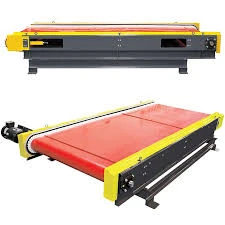

nov. . 09, 2024 01:56 Back to list
The Importance of Metal Shreds Recycling in Today’s Economy
In today's world, where sustainability and environmental protection have reached the forefront of global conversation, the recycling of materials has become a vital concern. Among the materials that are frequently recycled, metal shreds stand out as a particularly crucial resource. Metal shreds, which are produced as a by-product of metalworking processes, hold significant economic and environmental value. This article explores the importance of metal shreds recycling, the processes involved, and the benefits it brings to the economy and our planet.
Metal shreds refer to small pieces of metal that are left over after the machining, cutting, or fabrication processes. These shreds can come from various sources, including manufacturing facilities, construction sites, and automotive industries. Metal shreds can be composed of ferrous metals, such as iron and steel, or non-ferrous metals, including aluminum, copper, and brass. Regardless of their composition, these scraps represent a wealth of potential if properly processed and recycled.
One of the key benefits of recycling metal shreds is the conservation of natural resources. The extraction of raw metals from the earth is an energy-intensive process that often results in significant environmental degradation. By recycling metal shreds, we can reduce the need for mining and lessen the impact on ecosystems. For example, recycling aluminum saves up to 95% of the energy required to produce new aluminum from bauxite ore. This not only conserves energy but also reduces carbon emissions, contributing to the fight against climate change.
Additionally, recycling metal shreds supports the economy by creating jobs and fostering innovation within the recycling industry. The process of collecting, sorting, and processing metal scraps requires a skilled workforce. According to the Institute of Scrap Recycling Industries (ISRI), the U.S. recycling industry employs over 1.1 million workers, and many of these jobs are directly related to metal recycling. Furthermore, businesses that focus on recycling and processing metal shreds are continuously innovating to improve efficiency and sustainability, contributing to economic growth.

The recycling process for metal shreds typically involves several stages. First, the metal scraps are collected from various sources, including manufacturers and construction sites. The collected metal is then sorted, either manually or using advanced technology, to separate different types of metals. Once sorted, the metal shreds are cleaned to remove any contaminants, such as oil or plastic. After cleaning, the metal is compacted into bales or other forms to facilitate transportation. Finally, the processed metal shreds are sent to recycling facilities, where they are melted down and transformed into new products. This circular economy model exemplifies how waste can be repurposed, minimizing the extraction of virgin materials.
Another significant advantage of recycling metal shreds is its positive impact on local economies. By encouraging local recycling initiatives, communities can create a network of businesses focused on waste reduction and resource recovery. This can lead to economic diversification, particularly in areas that may be heavily reliant on a single industry. As local recycling businesses grow, they can attract investments and improve community resilience against economic fluctuations.
Moreover, the technological advancements in metal recycling have made the process more efficient and profitable. With the development of sophisticated machines and techniques, such as shredders and induction furnaces, the recycling of metal shreds has become faster and more environmentally friendly. Advanced separation technologies can even recover trace metals that were previously lost, maximizing the economic value of the recycling process while further reducing waste.
In conclusion, the recycling of metal shreds is an essential component of a sustainable economy. By recovering valuable metals and conserving natural resources, we not only improve our environmental footprint but also stimulate economic growth and job creation. The processes involved in recycling metal shreds promote a circular economy, ensuring that materials are reused, and waste is minimized. As we continue to embrace sustainability, it is crucial to recognize and support the recycling of metal shreds as a vital practice that benefits both our planet and our economy. By doing so, we can pave the way for a greener, more sustainable future for generations to come.
Latest news
Troubleshooting Common Eddy Separator Problems
NewsJul.04,2025
The Role of Metal Recycling Plants in Circular Economy
NewsJul.04,2025
The Impact of Recycling Line Pickers on Waste Management Costs
NewsJul.04,2025
Safety Features Every Metal Shredder Should Have
NewsJul.04,2025
How Industrial Shredders Improve Waste Management Systems
NewsJul.04,2025
How Cable Granulators Contribute to Sustainable Recycling
NewsJul.04,2025